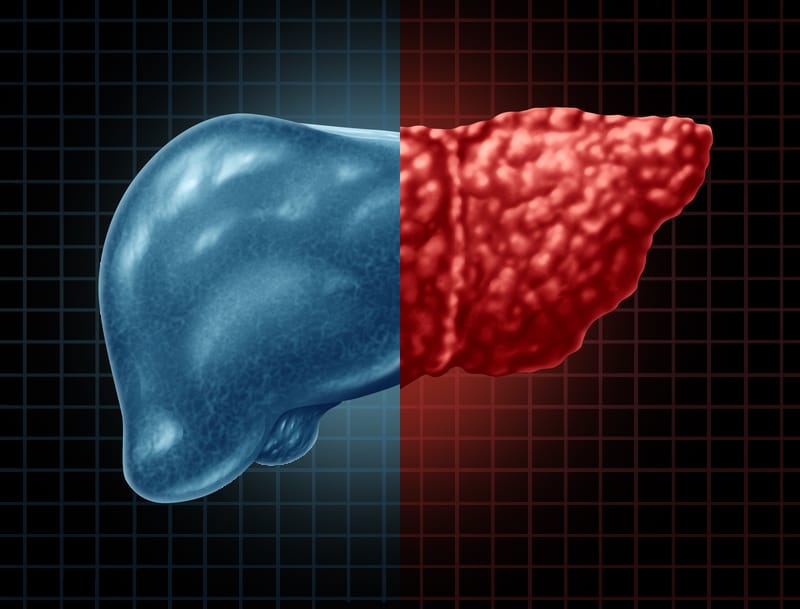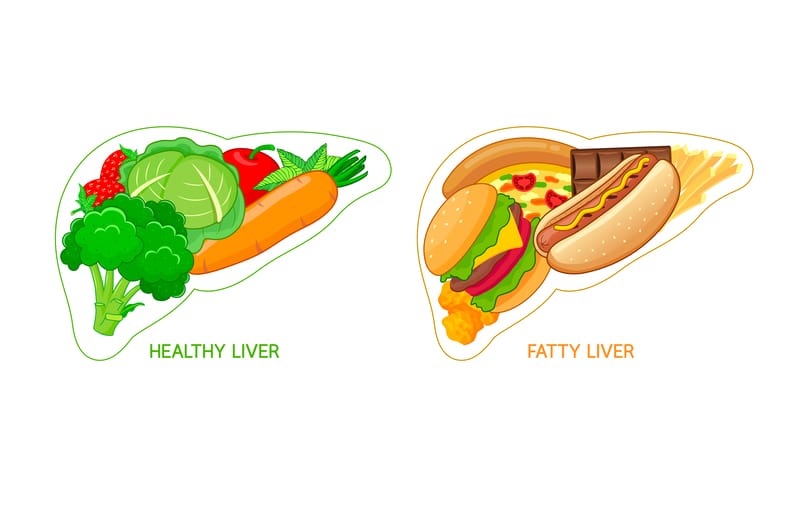The ketogenic (keto) diet has gained immense popularity in recent years for its potential benefits in weight loss, diabetes management, and other health conditions. One of the emerging areas of interest is the relationship between the keto diet and fatty liver disease, also known as non-alcoholic fatty liver disease (NAFLD). This article will delve into the potential benefits and risks of the keto diet for individuals with fatty liver, exploring the science behind it and offering practical advice.
1. Understanding Fatty Liver Disease
What Is Fatty Liver Disease?
Fatty liver disease occurs when fat builds up in the liver cells, leading to inflammation, liver damage, and sometimes, liver failure. There are two main types:
- Alcoholic Fatty Liver Disease (AFLD): Caused by excessive alcohol consumption.
- Non-Alcoholic Fatty Liver Disease (NAFLD): Occurs in individuals who consume little to no alcohol. It’s often linked to obesity, insulin resistance, and metabolic syndrome.
Prevalence and Risk Factors
NAFLD is the most common chronic liver condition worldwide, affecting up to 25% of the global population. Risk factors include:
- Obesity
- Type 2 diabetes
- High cholesterol
- High blood pressure
- Sedentary lifestyle

Symptoms and Diagnosis
Many people with fatty liver disease are asymptomatic. However, some may experience:
- Fatigue
- Abdominal discomfort
- Elevated liver enzymes (detected through blood tests)
Diagnosis often involves blood tests, imaging studies (like ultrasound), and sometimes a liver biopsy.
2. The Keto Diet: An Overview
What Is the Keto Diet?
The ketogenic diet is a high-fat, low-carbohydrate diet that shifts the body’s metabolism from relying on glucose (sugar) for energy to burning fat instead. This metabolic state is called ketosis.
Macronutrient Breakdown
- Fats: 70-80% of daily calories
- Proteins: 15-20%
- Carbohydrates: 5-10%
Common Foods on the Keto Diet
- Allowed: Meat, fish, eggs, dairy, nuts, seeds, healthy oils, non-starchy vegetables
- Avoided: Sugary foods, grains, starchy vegetables, legumes, fruits (except berries)
How Does Keto Work?
By drastically reducing carbohydrate intake, the body depletes its glycogen stores and begins to burn fat for fuel. This process produces ketones, which the body and brain can use for energy.
3. The Connection Between Keto and Fatty Liver Disease
How Does the Keto Diet Affect the Liver?
The liver plays a crucial role in fat metabolism. The keto diet’s high-fat intake might seem counterintuitive for liver health, but the way it influences the liver is complex.
- Reduction in Liver Fat:
- Weight Loss: One of the most effective treatments for NAFLD is weight loss. The keto diet has been shown to promote rapid weight loss, which can reduce liver fat.
- Insulin Sensitivity: The keto diet improves insulin sensitivity, which helps reduce the amount of fat stored in the liver.
- Decreased Inflammation: Keto may reduce liver inflammation by lowering levels of pro-inflammatory cytokines.
- Potential Risks:
- Increased Fat Intake: While the diet promotes the use of fat for energy, there’s a concern that excessive fat intake could potentially worsen liver conditions in some individuals.
- Nutrient Deficiencies: The restrictive nature of keto can lead to deficiencies in essential nutrients like fiber, vitamins, and minerals, which are important for overall liver health.
Scientific Evidence Supporting Keto for Fatty Liver
Several studies have explored the impact of the keto diet on fatty liver disease:
- Study 1: A 2019 study published in the journal Cell Metabolism found that a low-carbohydrate, high-fat diet improved liver fat content and insulin sensitivity in patients with NAFLD.
- Study 2: Research published in The American Journal of Clinical Nutrition in 2020 demonstrated that the keto diet led to significant reductions in liver fat and improved markers of liver function in obese individuals with NAFLD.
Personalizing the Keto Diet for Fatty Liver
While the keto diet shows promise, it’s important to personalize the approach based on individual health conditions:
- Consultation with a Healthcare Provider: Before starting the keto diet, individuals with fatty liver disease should consult with a healthcare provider to ensure it’s appropriate for their specific case.
- Moderation of Fat Intake: Focusing on healthy fats (e.g., avocados, nuts, seeds, olive oil) rather than saturated fats can help mitigate potential risks.
- Monitoring Liver Function: Regular monitoring of liver function and lipid profiles is essential to ensure the diet is not causing harm.
4. Practical Tips for Following a Keto Diet with Fatty Liver
Foods to Include
- Healthy Fats: Avocados, olive oil, coconut oil, fatty fish (salmon, mackerel)
- Lean Proteins: Chicken, turkey, lean cuts of beef, eggs
- Low-Carb Vegetables: Leafy greens, broccoli, cauliflower, zucchini, peppers
- Nuts and Seeds: Almonds, walnuts, chia seeds, flaxseeds
Foods to Avoid
- Sugary Foods and Drinks: Soda, candy, desserts
- Grains and Starches: Bread, pasta, rice, potatoes
- High-Carb Fruits: Bananas, apples, oranges, grapes
- Processed Foods: Fast food, packaged snacks, processed meats
Meal Planning
- Breakfast: Scrambled eggs with avocado and spinach cooked in olive oil
- Lunch: Grilled chicken salad with mixed greens, cucumbers, and olive oil dressing
- Dinner: Baked salmon with roasted broccoli and a side of cauliflower rice
- Snacks: Almonds, cheese sticks, boiled eggs
Staying Hydrated and Electrolyte Balance
The keto diet can lead to a loss of electrolytes due to reduced insulin levels and increased urination. To prevent dehydration and electrolyte imbalances:
- Drink plenty of water throughout the day.
- Consider supplementing with sodium, potassium, and magnesium.
- Include bone broth or electrolyte-rich beverages.
5. Addressing Common Concerns
Can Keto Worsen Liver Disease?
For most people, the keto diet is safe and may even improve liver health. However, in some cases, especially if not properly monitored, the diet could potentially exacerbate liver issues. Individuals with advanced liver disease or cirrhosis should approach the keto diet with caution and under medical supervision.
Long-Term Sustainability
The keto diet’s restrictive nature can make it challenging to maintain long-term. Gradual reintroduction of healthy carbohydrates, known as a “cyclical keto” or “modified keto” approach, may be beneficial for sustainability and overall health.
Balancing Keto with Other Lifestyle Changes
In addition to dietary changes, incorporating other lifestyle modifications can enhance liver health:
- Regular Exercise: Aerobic exercise and resistance training can improve insulin sensitivity and reduce liver fat.
- Weight Management: Achieving and maintaining a healthy weight is crucial for managing NAFLD.
- Avoiding Alcohol: Limiting alcohol intake is essential to prevent further liver damage.
6. Conclusion: Is Keto Good for Fatty Liver?
The ketogenic diet holds promise as a potential treatment for fatty liver disease, particularly NAFLD. Its ability to promote weight loss, improve insulin sensitivity, and reduce liver fat makes it an attractive option for many individuals. However, it’s important to approach the diet with caution, personalize it to individual needs, and monitor liver function regularly. Consulting with a healthcare provider before starting the keto diet is essential, especially for those with existing liver conditions.
While the keto diet may not be a one-size-fits-all solution, it offers a viable option for those looking to manage fatty liver disease through dietary changes. By combining the keto diet with other healthy lifestyle practices, individuals can take significant steps toward improving their liver health and overall well-being.
References
- Petersen, M. C., & Shulman, G. I. (2018). Mechanisms of insulin action and insulin resistance. Physiological Reviews, 98(4), 2133-2223.
- Browning, J. D., & Horton, J. D. (2004). Molecular mediators of hepatic steatosis and liver injury. The Journal of Clinical Investigation, 114(2), 147-152.
- Ludwig, J., Viggiano, T. R., McGill, D. B., & Oh, B. J. (1980). Nonalcoholic steatohepatitis: Mayo Clinic experiences with a hitherto unnamed disease. Mayo Clinic Proceedings, 55(7), 434-438.
- Vilar-Gomez, E., Martinez-Perez, Y., Calzadilla-Bertot, L., et al. (2015). Weight loss through lifestyle modification significantly reduces features of nonalcoholic steatohepatitis. Gastroenterology, 149(2), 367-378.
- Ma, J., Hennein, R., Liu, C., et al. (2018). Improved diet quality associates with reduction in liver fat—particularly whole grains, fruits, vegetables, and nuts: The Framingham Heart Study. American Journal of Clinical Nutrition, 108(2), 299-304.
This article is intended for informational purposes only and should not be considered medical advice. Always consult with a healthcare provider for advice on managing specific health conditions.


